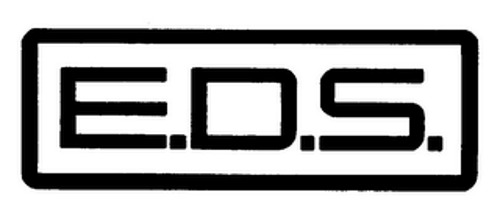 In my last post, I discussed the case of EDS versus EDS. In that case, one company that used the EDS mark opposed another company’s registration of the mark EDS. Identical trademarks. Sales to the same customers. But no conflict.
In my last post, I discussed the case of EDS versus EDS. In that case, one company that used the EDS mark opposed another company’s registration of the mark EDS. Identical trademarks. Sales to the same customers. But no conflict.
One reason for the result was that goods/services provided by the respective companies were sold in different channels of trade to different purchasers.
Another reason–the focus of this post–is that the customers that purchased the goods/services of each company were sophisticated purchasers.
First, a quick recap of parties and their products/services. Electronic Design & Sales, Inc. (“Electronic Design”) filed an application to register the mark E.D.S. for power supplies or battery chargers.Electronic Data System Corp. (“Electronic Data”) opposed Electronic Design’s trademark application for E.D.S in Electronic Design & Sales, Inc. v. Electronic Data Systems Corp., 954 F.2d 713 (Fed. Cir. 1992). Electronic Data used the mark EDS for the sale of computer programming and installation services. Both companies sold to some of the same customers.
Sophisticated Purchasers and Expensive Services
The chance of conflict (i.e. “a likelihood of confusion”) between two trademarks is reduced where the goods/services are expensive and purchased after careful consideration. Sophisticated consumers may be expected to exercise greater care in making purchasing decisions.
When a purchaser exercises greater care in making purchasing decisions it is more likely the purchaser will notice differences between the respective marks, the respective goods/services, and the respective sources of those goods/services. Therefore it is less likely the purchaser will be confused to believe that the goods/services of one company originate from the other company.
In this case, Electronic Data’s computer services are “expensive and are purchased only by experienced corporate officials after significant study and contractual negotiation.” When a customer is making an expensive purchase after a contractual negotiation, it is very likely the customer will know the service provider negotiating the contract. Therefore, the purchaser is less likely to be confused as to the source of those services.
Likewise, evidence showed that the evaluation process used in selecting Electronic Design’s battery and power products by customers required significant knowledge and scrutiny.
In this case conflict was avoided, in part, because the parties’ goods/services were usually purchased after careful consideration by persons who were highly knowledgeable about the goods or services and their source.
Responding to a Trademark Cease and Desist Letter
When both parties’ customers are sophisticated purchasers the chance of confusion as to the source of the parties’ goods/services is reduced. Therefore the chance of a conflict between the marks is reduced. Further, when the goods/services are expensive, customers are more likely to take greater care in making purchasing decisions.
When your goods and the plaintiff’s goods are expensive and/or purchased by sophisticated customers, you have a better chance of defending against claims of trademark infringement.
See other posts in this How to Respond to a Trademark Cease and Desist series:
- Priority – The “I was First” Defense
- The Trademark is Weak: Multiple Third Parties Using the Mark
- The Trademark is Descriptive
- Trademarks Sound Similar, But Don’t Conflict: Phonic EquivalentsÂ
- Trademarks have Different Meanings
- The Trademark is Geographically Descriptive
- Different Channels of Trade and Purchasers